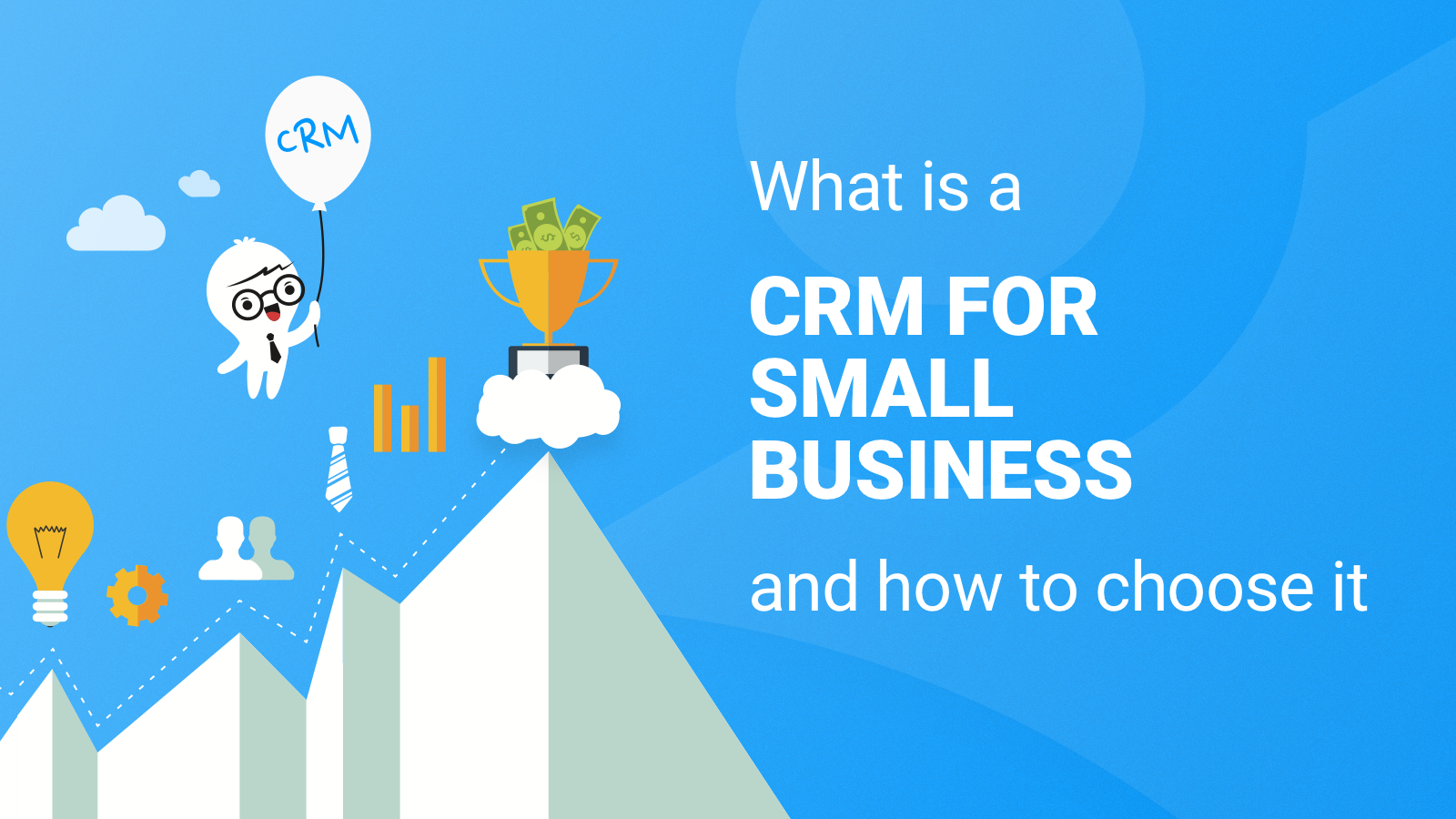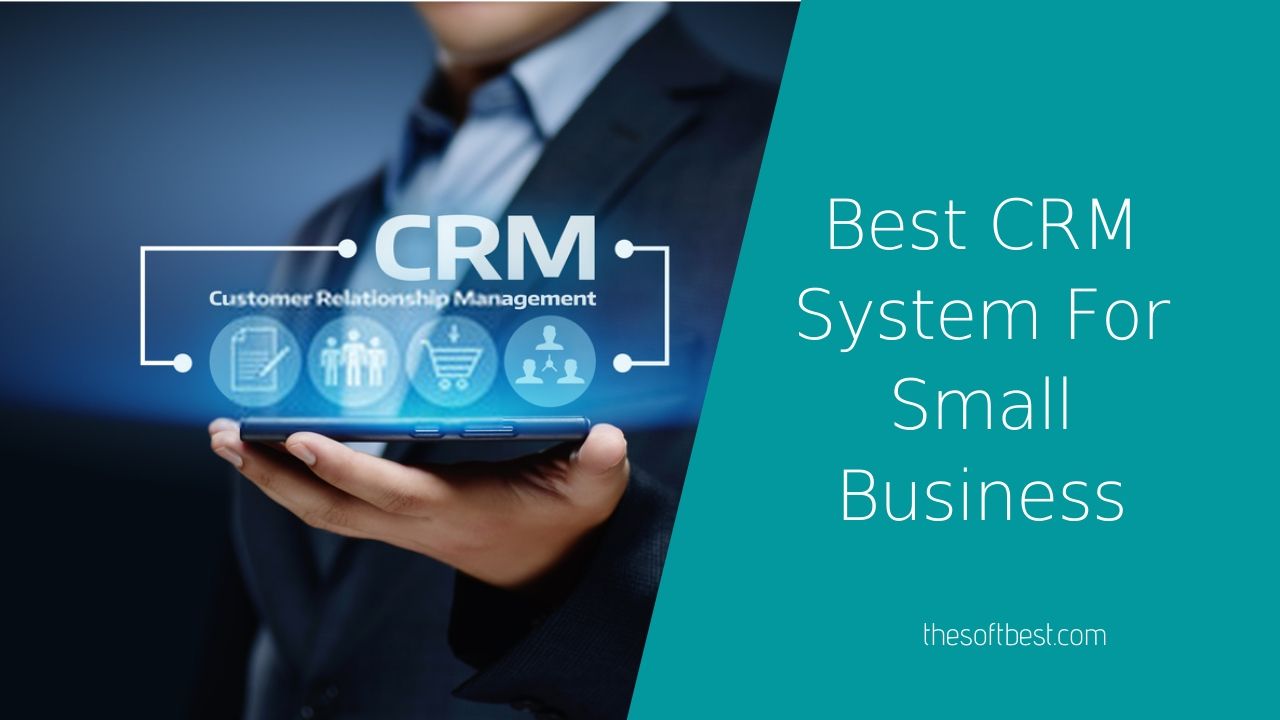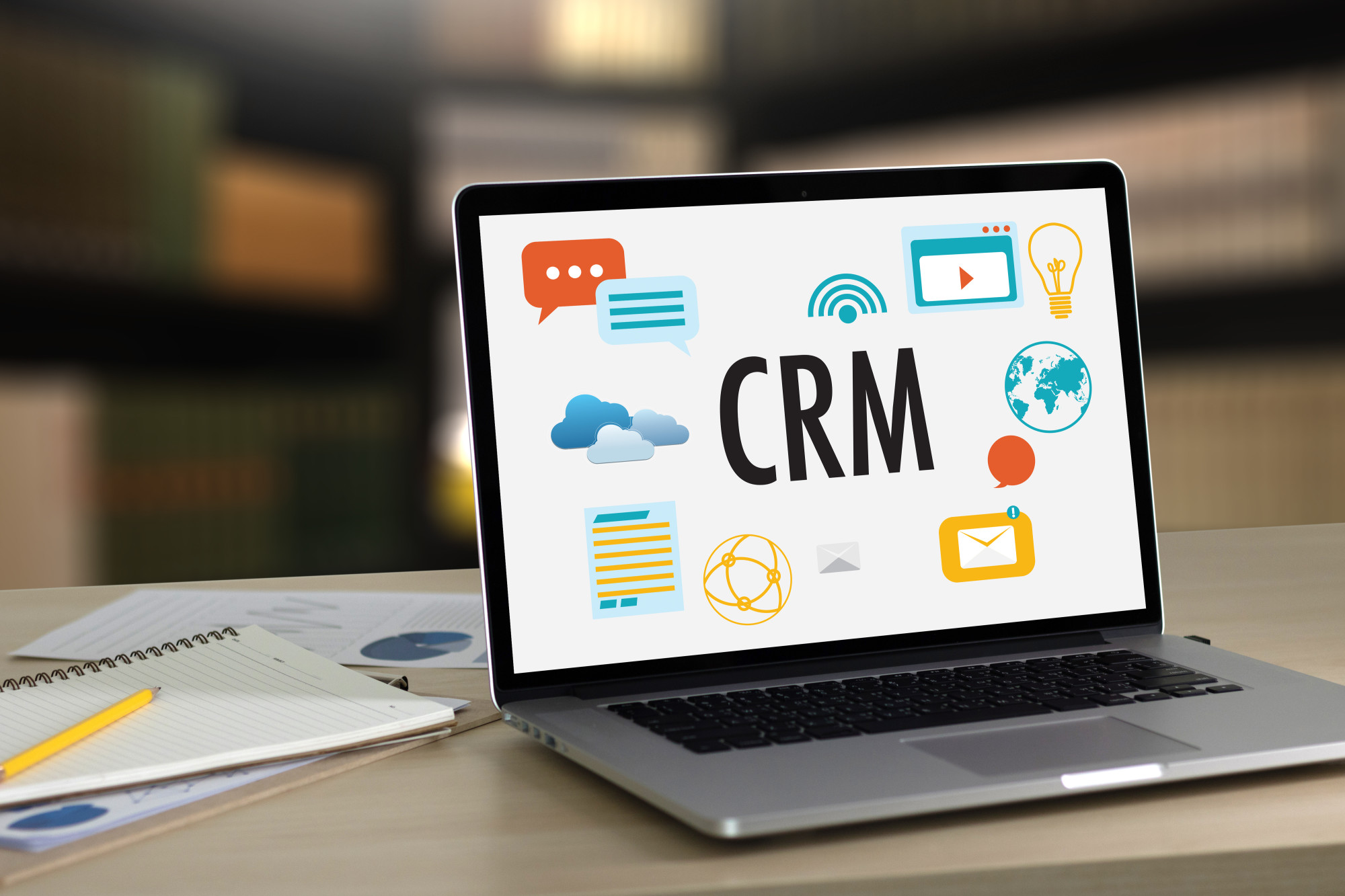Small biz CRM: A Comprehensive Guide for Small Business Success introduces the topic of customer relationship management (CRM) systems for small businesses. This guide delves into the benefits, challenges, types, implementation, and emerging trends of CRM systems, providing valuable insights and practical advice for small businesses looking to enhance their customer relationships and drive growth.
CRM systems are essential tools for small businesses to manage their customer interactions, streamline operations, and gain valuable insights into their customer base. By leveraging the power of CRM, small businesses can improve customer satisfaction, increase sales, and gain a competitive edge in today’s dynamic market.
Understanding Small Business CRM
Small businesses can significantly benefit from implementing a customer relationship management (CRM) system. CRM for small businesses is a software tool that helps manage customer interactions, track sales leads, and improve customer service.
A CRM system can help small businesses:
- Organize and track customer information
- Manage sales leads and opportunities
- Provide better customer service
- Automate marketing and sales tasks
- Generate reports and analytics
Implementing a CRM system can be a challenge for small businesses, but it is worth the investment. With a CRM system, small businesses can improve their customer relationships, increase sales, and improve efficiency.
Examples of Small Businesses That Have Successfully Used CRM
- A small retail store used a CRM system to track customer purchases and preferences. This information helped the store to target its marketing efforts and increase sales.
- A small manufacturing company used a CRM system to manage its sales pipeline and track customer orders. This information helped the company to improve its sales process and increase its conversion rate.
- A small professional services firm used a CRM system to track client interactions and manage its billing. This information helped the firm to improve its customer service and increase its revenue.
Types of Small Business CRM
Small business CRM systems come in various types, each with its own set of features, pricing, and target industries. Understanding the different types of CRM can help small businesses choose the right system for their specific needs.
Cloud-Based CRM vs. On-Premise CRM
One of the primary distinctions between CRM systems is whether they are cloud-based or on-premise. Cloud-based CRM systems are hosted by a third-party provider and accessed over the internet, while on-premise CRM systems are installed on the business’s own servers.
| Feature | Cloud-Based CRM | On-Premise CRM |
|---|---|---|
| Cost | Typically lower upfront costs, but may have ongoing subscription fees | Higher upfront costs, but no ongoing subscription fees |
| Flexibility | Easy to scale up or down as needed | More difficult to scale, may require additional hardware or software |
| Security | Can be secure, but relies on the provider’s security measures | Typically more secure, as the business has control over the data |
| Target Industries | Suitable for businesses of all sizes | Often used by larger businesses with complex CRM needs |
Case Studies
Here are some case studies of small businesses using specific CRM systems:
- Acme Corporation, a small manufacturing company, implemented a cloud-based CRM system to improve customer service and sales tracking. The system helped Acme track customer interactions, manage leads, and close deals more efficiently.
- XYZ Consulting, a small consulting firm, implemented an on-premise CRM system to manage client relationships and project tracking. The system helped XYZ track client communication, schedule appointments, and manage billing.
Choosing the Right Small Business CRM
Selecting the right CRM system is crucial for small businesses to maximize efficiency and customer relationships. Consider the following factors:
Business Size and Industry
Small businesses come in various sizes and industries. Choose a CRM that caters to your specific requirements. A small manufacturing firm may need a system with inventory management features, while a consulting firm may prioritize project tracking capabilities.
Budget
CRMs range in cost, so determine a budget that aligns with your financial capabilities. Consider not only the upfront cost but also ongoing maintenance and support fees.
Integration Needs
If your business uses other software, ensure the CRM integrates seamlessly with them. This integration can streamline processes and eliminate data duplication.
Checklist for Evaluating CRM Options
- Identify your business’s specific CRM requirements.
- Research and compare different CRM systems.
- Consider user reviews and industry recommendations.
- Request demos or free trials to experience the system firsthand.
- Evaluate the CRM’s ease of use, customization options, and customer support.
Implementing and Using a Small Business CRM
Implementing and effectively utilizing a customer relationship management (CRM) system is crucial for small businesses seeking to enhance customer relationships and drive growth. This involves careful planning, data migration, user training, and ongoing maintenance. Here are the key steps and best practices to consider:
Data Migration, Small biz crm
Migrating existing customer data into the new CRM system is a critical step. Ensure that all relevant data, such as customer profiles, contact information, purchase history, and support interactions, is accurately transferred. Consider using a data migration tool or consulting with a CRM implementation specialist for a seamless transition.
User Training
Training users on how to effectively use the CRM system is essential for its successful adoption. Provide comprehensive training sessions covering all aspects of the CRM, including data entry, lead management, customer segmentation, and reporting. Encourage users to ask questions and provide feedback to ensure they are comfortable with the system.
Ongoing Maintenance
Regular maintenance is crucial to keep the CRM system running smoothly and up to date. This includes applying software updates, monitoring system performance, and addressing any technical issues promptly. Additionally, review and update CRM data regularly to ensure its accuracy and relevance.
Best Practices for Using CRM Effectively
To maximize the benefits of a CRM system, follow these best practices:
- Centralize customer data:Store all customer-related information in one central location to gain a comprehensive view of each customer’s interactions with your business.
- Automate workflows:Automate repetitive tasks such as lead scoring, email campaigns, and appointment scheduling to streamline processes and save time.
- Personalize customer interactions:Use customer data to personalize marketing campaigns, product recommendations, and support interactions to build stronger relationships.
- Track customer engagement:Monitor customer interactions across multiple channels to identify opportunities for engagement and improve the customer experience.
- Measure and analyze results:Regularly track key CRM metrics such as lead conversion rates, customer satisfaction, and sales revenue to evaluate the effectiveness of your CRM efforts and make data-driven improvements.
Benefits of Small Business CRM

Implementing a customer relationship management (CRM) system can provide numerous benefits for small businesses, enhancing their operations, customer interactions, and overall growth. These advantages include increased sales, improved customer satisfaction, enhanced operational efficiency, and the ability to make data-driven decisions.
Statistics and data consistently demonstrate the positive impact of CRM systems on small businesses. A study by Salesforce found that companies using CRM experienced a 29% increase in sales revenue. Additionally, a survey by Nucleus Research revealed that CRM systems provide a return on investment (ROI) of $8.71 for every $1 spent.
Increased Sales
- Streamlined sales processes improve lead management and conversion rates.
- Centralized customer data provides insights into customer preferences and buying patterns.
- Automated follow-ups and reminders ensure timely communication with potential customers.
Improved Customer Satisfaction
- Personalized interactions based on customer history and preferences.
- Quick and efficient resolution of customer queries and complaints.
- Proactive outreach to customers for feedback and support.
Enhanced Operational Efficiency
- Automated tasks, such as data entry and scheduling, save time and resources.
- Centralized data eliminates duplication and improves data accuracy.
- Real-time reporting and analytics provide insights for informed decision-making.
Data-Driven Decisions
- CRM systems collect and analyze customer data, providing valuable insights.
- Data-driven insights help businesses understand customer behavior, identify trends, and make informed decisions.
- Improved decision-making leads to better outcomes, such as increased sales and improved customer satisfaction.
Success Stories
Numerous small businesses have achieved tangible results with CRM systems. For example, a small retail store in California implemented a CRM system and saw a 20% increase in sales within six months. A technology startup in New York used a CRM system to improve customer satisfaction by 30%, resulting in increased customer loyalty and repeat business.
These success stories demonstrate the transformative power of CRM systems for small businesses. By leveraging the benefits of CRM, small businesses can streamline operations, improve customer relationships, and drive growth.
Challenges of Small Business CRM
Implementing and utilizing a CRM system in small businesses can present various challenges. These include:
Cost
Acquiring and maintaining a CRM system can be a significant financial burden for small businesses. Subscription fees, implementation costs, and ongoing maintenance expenses can strain limited budgets.
Data Security
Small businesses often lack robust cybersecurity measures, making them vulnerable to data breaches and cyberattacks. Storing sensitive customer information in a CRM system raises concerns about data security and compliance with regulations.
User Adoption
Encouraging employees to adopt and effectively use a new CRM system can be challenging. Resistance to change, lack of training, and poor user interfaces can hinder user adoption, limiting the system’s effectiveness.
Emerging Trends in Small Business CRM

The small business CRM landscape is constantly evolving, with new technologies and trends emerging all the time. These trends are shaping the future of CRM for small businesses, and it’s important to be aware of them in order to make the most of your CRM system.
One of the most significant trends in small business CRM is the rise of artificial intelligence (AI). AI-powered CRM systems can automate tasks, such as lead scoring and customer segmentation, which can free up small business owners to focus on more strategic initiatives.
AI can also be used to provide insights into customer data, which can help small businesses make better decisions about their marketing and sales efforts.
Mobile CRM
Another important trend in small business CRM is the increasing popularity of mobile CRM. Mobile CRM systems allow small business owners to access their CRM data from anywhere, at any time. This can be a major advantage for small businesses that are always on the go.
Mobile CRM systems can also be used to track customer interactions, such as phone calls and emails, which can help small businesses provide better customer service.
Machine Learning
Machine learning is a type of AI that allows computers to learn from data without being explicitly programmed. Machine learning can be used to improve the accuracy of CRM predictions and recommendations. For example, a machine learning algorithm could be used to predict the likelihood that a lead will convert into a customer.
This information could then be used to prioritize sales efforts and improve conversion rates.
These are just a few of the emerging trends in small business CRM. As these trends continue to evolve, it’s important for small businesses to stay up-to-date on the latest developments. By doing so, small businesses can take advantage of the latest technologies and trends to improve their CRM systems and grow their businesses.
Closing Summary: Small Biz Crm

In conclusion, small biz CRM is a powerful tool that can transform the way small businesses manage their customer relationships and drive business success. By carefully considering the factors discussed in this guide, small businesses can select and implement a CRM system that meets their unique needs and helps them achieve their business goals.
As the CRM landscape continues to evolve, small businesses should stay abreast of emerging trends and best practices to maximize the benefits of these systems and stay ahead of the competition.